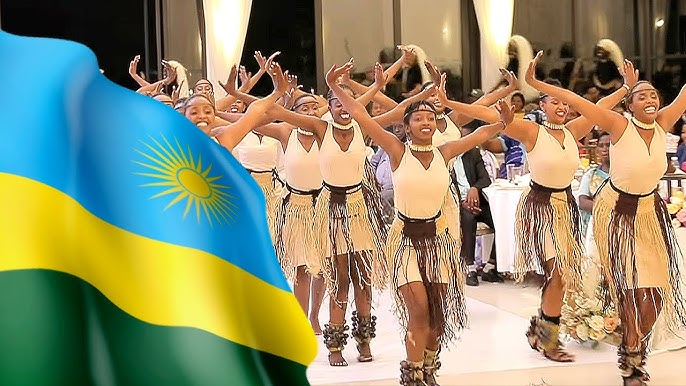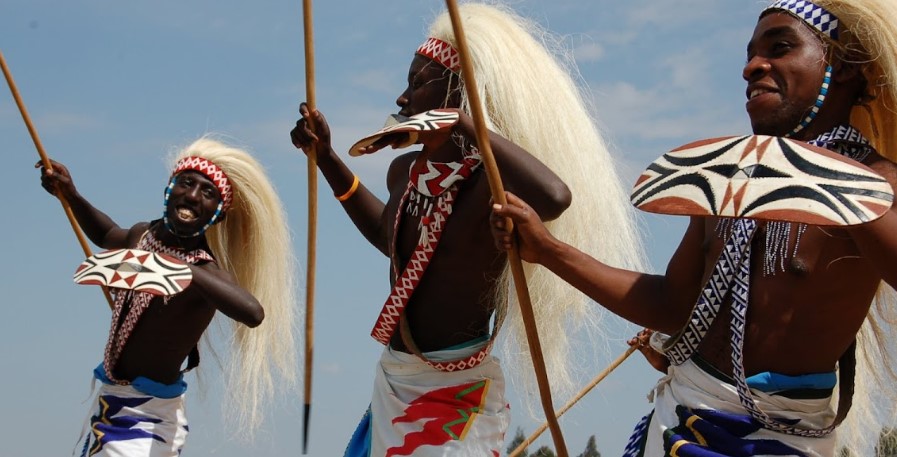The People of Rwanda : Rwanda is a country with a rich cultural heritage and a diverse population. Rwanda has people spread in 3 ethnic groups that are: –

- Hutu: The Hutu are the largest ethnic group in Rwanda, making up around 84% of the population.
- Tutsi: The Tutsi are the second-largest ethnic group, making up around 15% of the population.
- Twa: The Twa are a small ethnic group, making up around 1% of the population.
The people speak 3 main Languages: –
- Kinyarwanda: Kinyarwanda is the official language of Rwanda and is spoken by the vast majority of the population.
- English: English is also an official language and is widely spoken, particularly in business and education.
- French: French is also spoken by some Rwandans, particularly those who were educated in French-speaking schools.
Culturally the people of Rwanda are:-
- Community-oriented: Rwandan culture is highly community-oriented, with a strong emphasis on family and social relationships.
- Respect for elders: Older people are highly respected in Rwandan culture, and children are taught from a young age to show deference to their elders.
- Traditional crafts: Rwanda has a rich tradition of crafts, including basket-weaving, pottery, and woodcarving.
Religion
- Christianity: The majority of Rwandans are Christian, with around 56% of the population identifying as Catholic and around 26% identifying as Protestant.
- Islam: Around 5% of the population identifies as Muslim.
- Traditional beliefs: Some Rwandans also practice traditional beliefs and rituals.
When we talk Demographics
- Population size: Rwanda has a population of around 12 million people.
- Population growth rate: Rwanda has a relatively high population growth rate, with an average annual growth rate of around 2.6%.
- Urbanization: Around 17% of Rwanda’s population lives in urban areas, with the majority living in rural areas.
Rwanda is a culturally rich and diverse country with a strong emphasis on community, respect, and tradition and here are some cultural norms to keep in mind when interacting with the people of Rwanda:
Greetings and Physical Interaction
- Handshakes: Handshakes are a common greeting in Rwanda, often accompanied by a slight bow of the head.
- Respect for elders: Show respect to elderly individuals by greeting them first and using honorific titles such as “Mzee” (older man) or “Mama” (older woman).
- Physical touch: Physical touch is generally reserved for close friends and family members.
Communication Styles
- Formal communication: Use formal language when communicating with authorities, elders, or in professional settings.
- Respectful tone: Speak in a respectful tone, avoiding loud or confrontational language.
- Nonverbal communication: Pay attention to nonverbal cues, such as body language and facial expressions.
Social Etiquette
- Respect for tradition: Show respect for traditional practices and customs, such as the “Umuganda” community service day.
- Community involvement: Engage with local communities and participate in cultural activities to build relationships and show respect.
- Dress modestly: Dress modestly, covering shoulders and knees, especially when visiting rural areas or attending cultural events.
Dining and Food
- Sharing food: Sharing food is a sign of hospitality and friendship in Rwandan culture.
- Using your right hand: When eating or giving/receiving something, use your right hand, as the left hand is considered unclean.
- Respect for traditional cuisine: Show appreciation for traditional Rwandan cuisine, such as “Umutsima” (cassava and cornmeal dish).
Gift-Giving
- Respectful gifts: Give gifts that are respectful and meaningful, such as traditional crafts or clothing.
- Avoid expensive gifts: Avoid giving expensive gifts, as they may be seen as extravagant or disrespectful.
- Gift-giving etiquette: When giving gifts, use both hands and bow your head slightly as a sign of respect.
By understanding and respecting these cultural norms, you can build strong relationships with the people of Rwanda and have a more meaningful and enriching experience.
Rwanda also has a diverse economy with a growing service sector, a significant agricultural sector, and a developing industrial sector and you wish to interact with the people for business and economic purposes these are some economic activities of the people of Rwanda.
Agriculture
- Subsistence farming: Many Rwandans engage in subsistence farming, growing crops like maize, beans, and cassava for personal consumption.
- Cash crops: Coffee, tea, and pyrethrum are major cash crops, with many farmers selling their produce to local markets or export companies.
- Livestock farming: Livestock farming, including cattle, goats, and poultry, is also a significant economic activity.

The People of Rwanda
Industry
- Manufacturing: Rwanda has a growing manufacturing sector, with companies producing goods like textiles, food products, and construction materials.
- Mining: Rwanda is rich in minerals like tin, tungsten, and gold, with many small-scale miners operating in the country.
- Construction: The construction sector is also growing, with many Rwandans employed in building and civil engineering projects.
Services
- Tourism: Tourism is a significant contributor to Rwanda’s economy, with many Rwandans employed in the hospitality industry.
- Financial services: Rwanda has a well-developed financial sector, with many banks, microfinance institutions, and insurance companies operating in the country.
- Transportation: The transportation sector is also important, with many Rwandans employed in road, air, and water transportation.
Informal Economy
- Small-scale trade: Many Rwandans engage in small-scale trade, selling goods like fruits, vegetables, and handicrafts in local markets.
- Street vending: Street vending is also common, with many Rwandans selling goods like food, drinks, and clothing on the streets.
- Artisanal activities: Artisanal activities like basket weaving, pottery, and woodcarving are also important economic activities.


